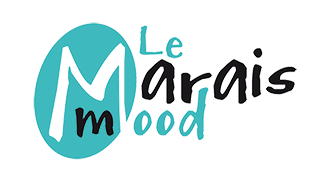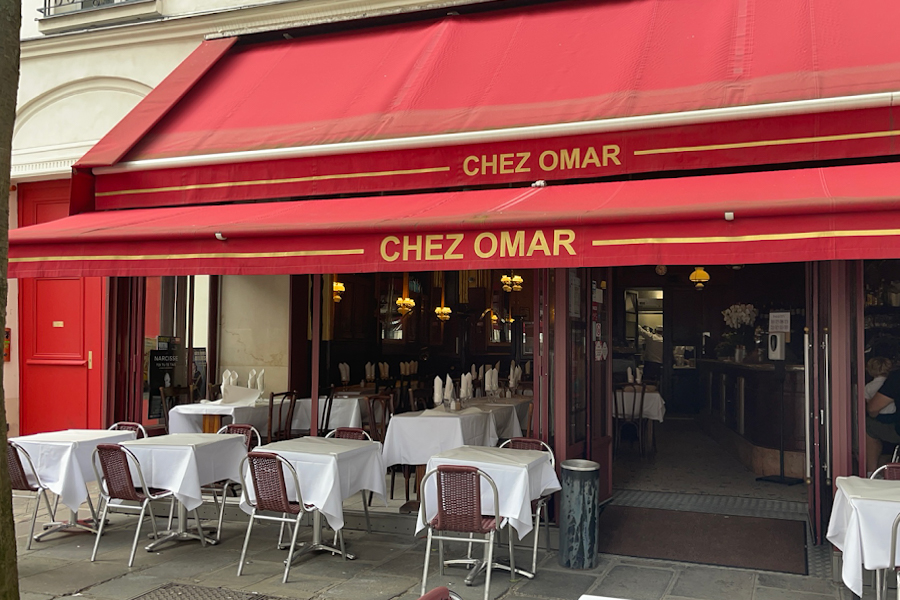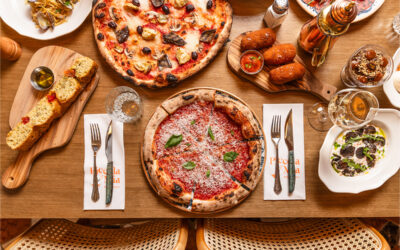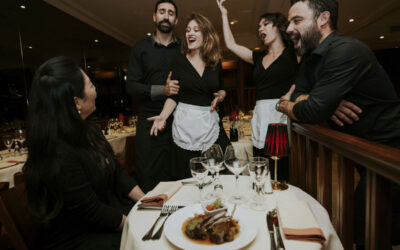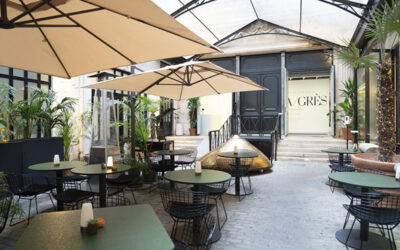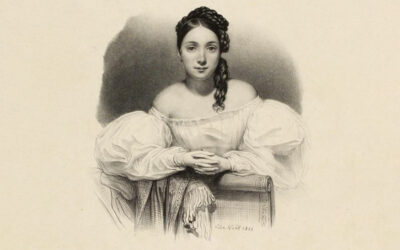Photos: Chez Omar
In the top 5 favorite dishes of the French, couscous is a very local institution.
In Paris, the couscous restaurant Chez Omar is also an institution. Inaugurated in 1979, rue de Bretagne, in the Marais, next to a cinema (at the current location of the Franprix supermarket), the establishment has never been empty since then.
“From day one, my establishment was fashionable… thanks to fashion people,” says Omar Guerda, now 79 years old. Even today, it remains a sure value. We eat couscous there seven days a week, lunch and dinner, except Sunday evening.
In addition to fashion people, including the fashion designer Azzedine Alaïa based in the 4th arrondissement, there is a crowd of night owls. In fact, the legendary years 1979-1980 correspond to the golden age of Parisian nights. Party people come to dinner at Chez Omar before going to have fun at the Shower Baths, very close (rue du Bourg-l'Abbé, in the 3rd).
From the rock group Telephone to Grace Jones via Jack Nicholson, David Bowie or Mel Gibson, the nightclub is frequented by celebrities who sometimes stop by the establishment on rue de Bretagne.
Finally, the 1980s saw the rise of the Marais gay and art galleries in the neighborhood – Yvon Lambert on your mind. “After the openings, people met at my house,” remembers the owner.
Omar's secret? “I kept the original decor, that of an inter-war brasserie called La Bière,” says the boss who is as much an aesthete as a great sage. “In the 1980s, a lot of people advised me to destroy everything to create a modern decor. They told me to have carpet laid. » To which Omar systematically replies: “No. »
This is why the restaurant room retains its character and continues to attract a loyal clientele. They are not the only ones but the “fashioners” are always there.
“In 2017,” says Omar, “Naomi Campbell came to see me after the funeral of Azzedine Alaïa who had hosted her, when she was just starting out, in her house in Marais. She said to me: “Today I buried my dad…”
Omar's other secret is his consistency: in forty-three years, his card has not changed once. And it’s true that tradition is good!
At Omar's
47 Rue de Bretagne, 75003 Paris
Monday to Saturday from 12 p.m. to 14:30 p.m. and from 19 p.m. – 23:30 p.m.
Sunday from 19 p.m. – 23:30 p.m.
Tel: +09 86 39 91 14 XNUMX
Text: Axel G.
18.02.22
UNE LITTLE HUNGRY ?
Piccola Mia, the pizzas of the Republic
On the Place de la République, a brasserie with Italian accents has just opened, which quickly made people forget the old Pizza Pino. Welcome to Piccola Mia, the fruit of the joyful encounter between Italian chef Denny Imbroisi, pizza chef Julien Serri and mixologist Matthias Giroud who creates a creative cocktail menu.
Bel Canto, an evening of singing
Pushing the door of Bel Canto is like entering the opera. On the upper quay of the Seine, facing Ile Saint-Louis, Bel Canto is not an ordinary restaurant. Here, we dine but above all, we come to listen to the great classics of lyrical art, performed by... the room staff!
At the Azzedine Alaïa Foundation, a haute couture restaurant
Secret, or discreet, addresses are sometimes the best. This is the case of the Azzedine Alaïa Foundation café-restaurant, in the Marais, very close to the BHV. You enter through a carriage entrance which opens onto a paved courtyard. Without paying attention, we have just entered the kingdom of the brilliant fashion designer who died in 2017 at the age of 82.
NOW ON
THE MOOD MARSH
Victor Hugo, the writer with a thousand talents
Born in 1802, Victor Hugo became a social writer, a playwright, a poet, a novelist and a romantic designer. Nicknamed the man-ocean then the man-century, he is a political figure and a committed intellectual. He found success with Notre-Dame-de-Paris in 1831 and with Les Misérables in 1862.
The best tattoo parlors in Marais
Tattooing, an age-old practice, has long been the prerogative of convicts, dock workers, the underworld and sailors. Although it has become democratized, now affecting all profiles and concerning one in five French people, including 16% women compared to 10% men, it still remains taboo due to its definitive and transgressive nature.
Juliette Drouet actress, muse and mistress of Victor Hugo
At 14 rue Sainte-Anastase, from 1836 to 45 and at 12 from 1845 to 48, a few hundred meters from Place des Vosges, lived the muse and lover of Victor Hugo, Juliette Drouet née Julienne Gauvain.
